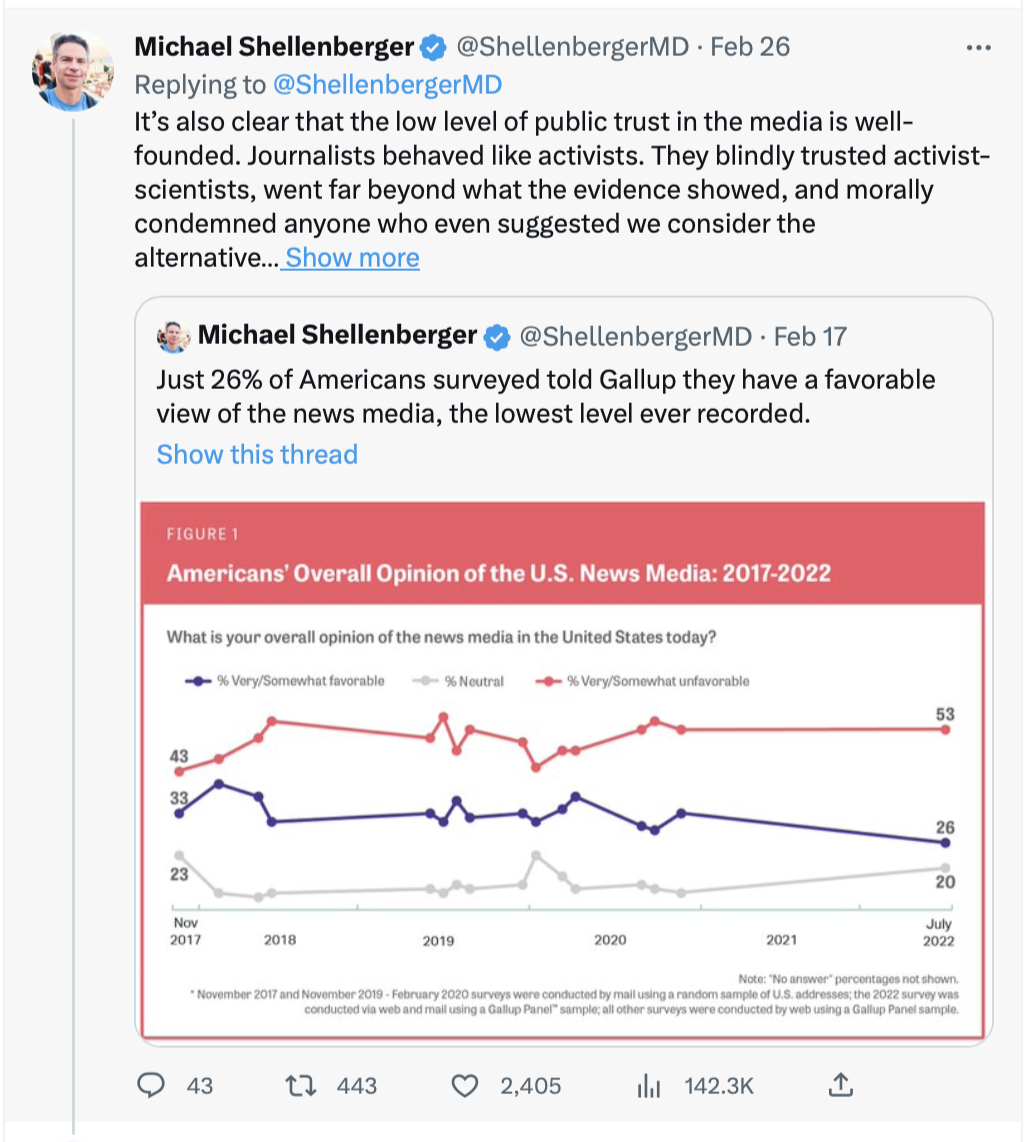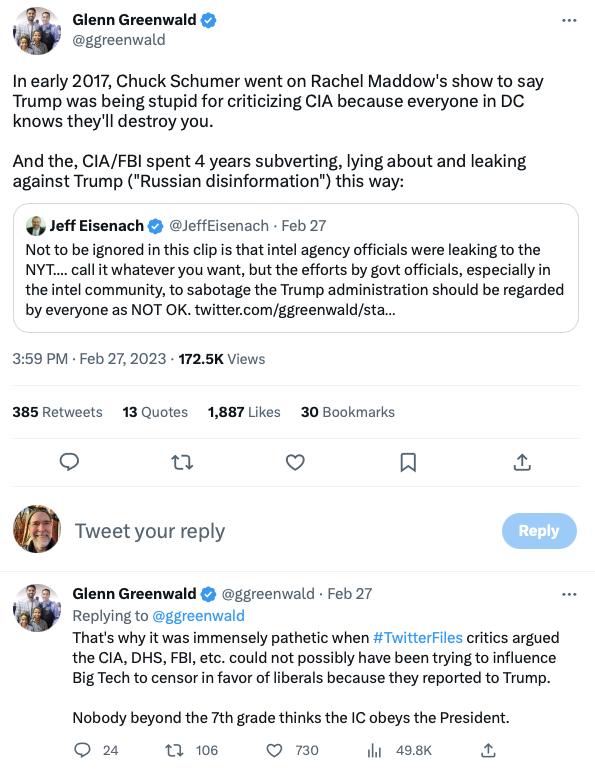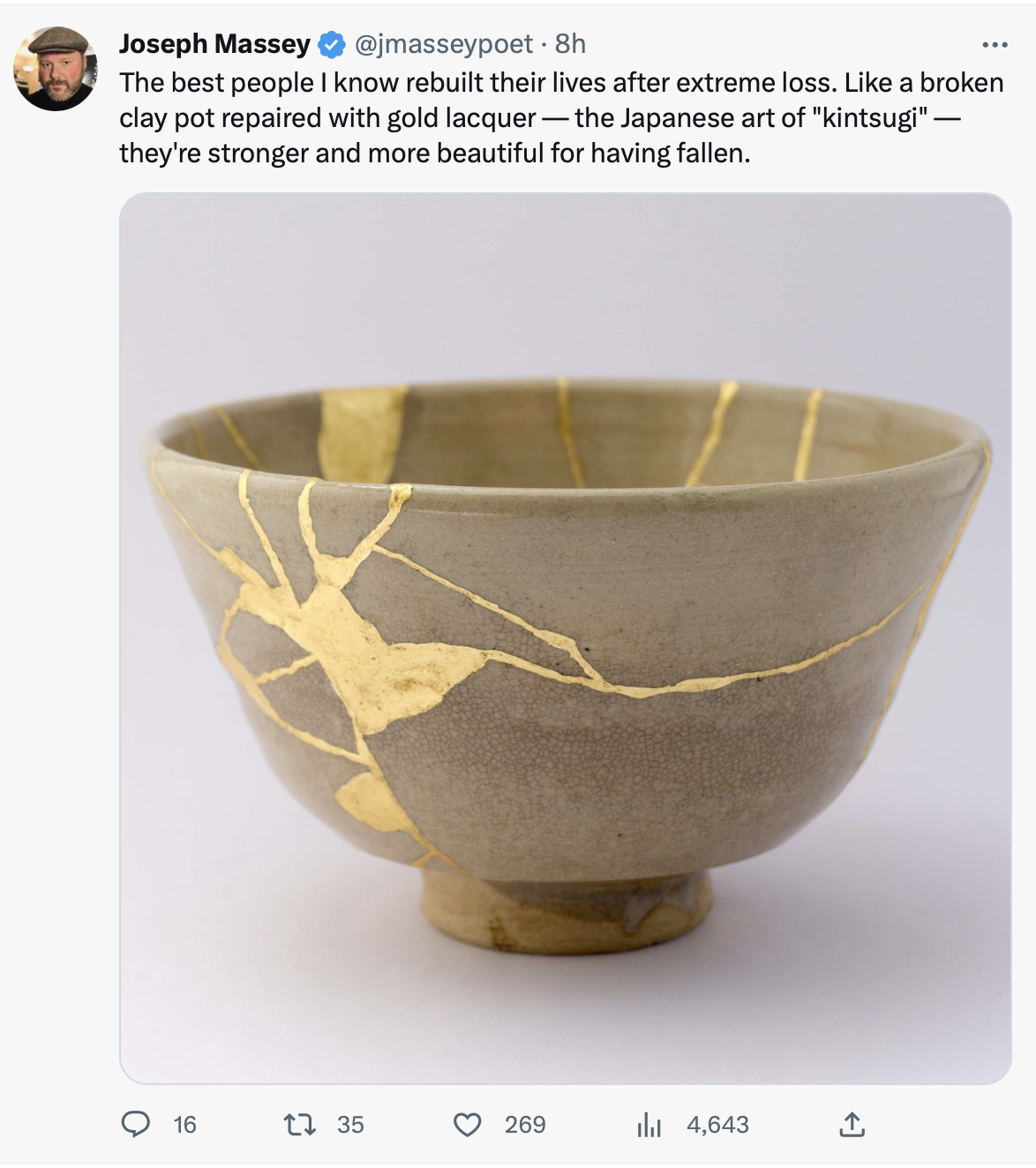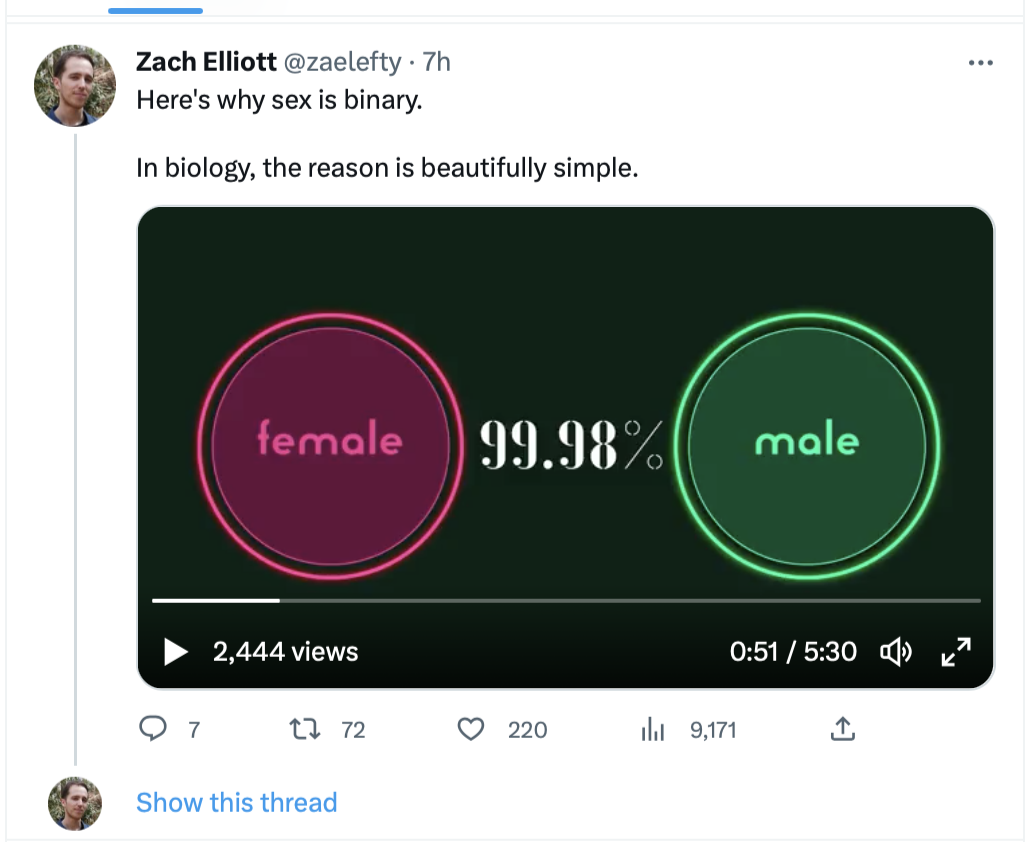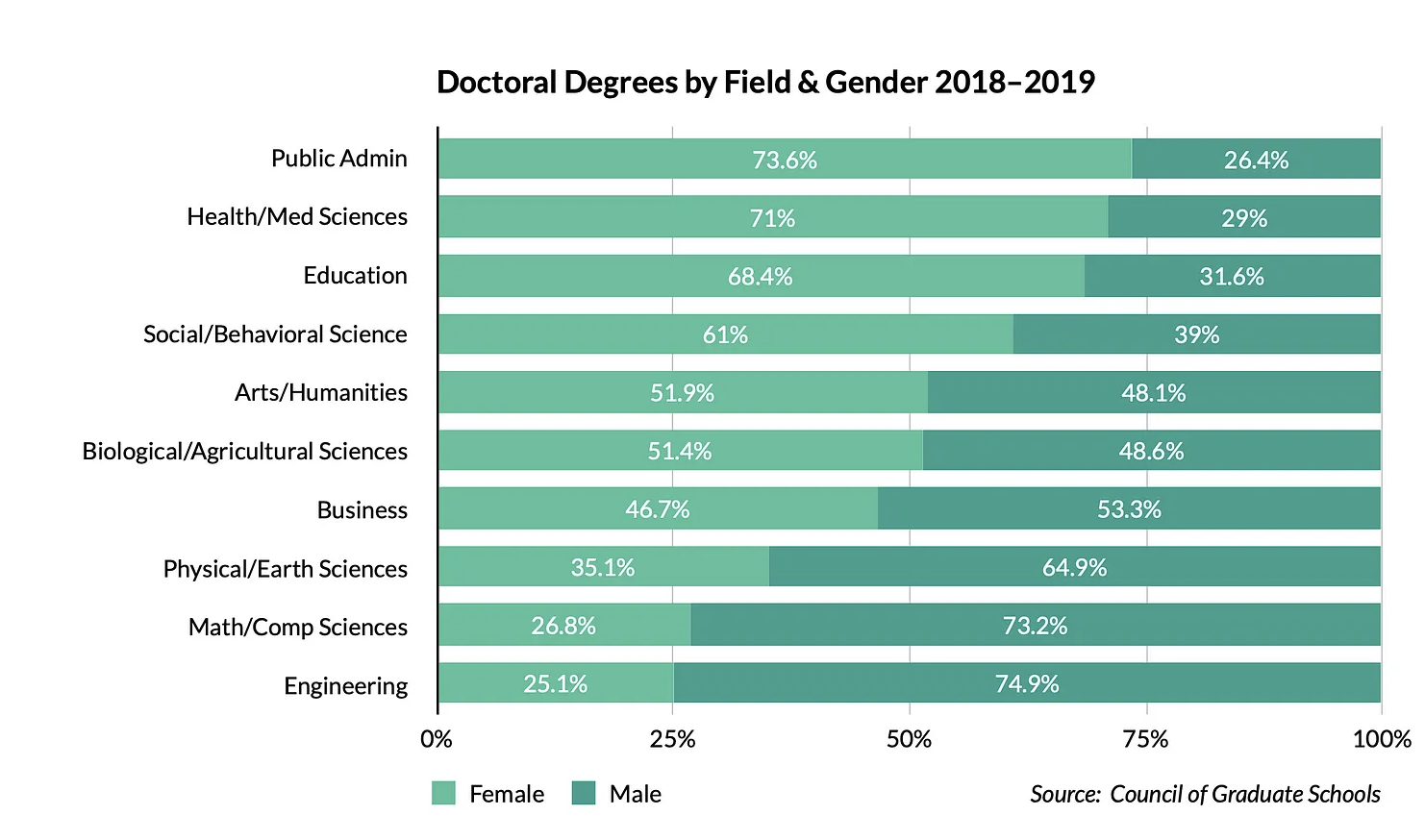Nashville Shooting is a Tale of Two Media Ecosystems
Whatever the story of the day, it will immediately hit the "go" button, causing the two corporate media tribes to roll up their sleeves to reverse-engineer what happened, turbo-charging certain convenient facts and suppressing other inconvenient facts. That is what has happened in the case of 28-year old Audrey Hale, who murdered six people at a Nashville Christian school. In a perverse way, it inspires a feeling of awe to behold the contortionist work product of the two well-oiled media machines. Oh, to be a fly in the wall in the back offices of those two teams!
As a citizen who is not naive, you might be thinking "But what actually happened? Just tell us the facts, please." Instead of becoming well-informed, however, you will be presented with an intensely processed/sterilized/lede-burying/contorted story that will give you, at best, about half of what happened. When we see this results of this process, story after story, week after week, it should challenge all of us to stop trusting any one "news" account. It should remind us that they are preaching to us, not teaching us about the real world. It should deeply insult us that they are coddling, as though we are children. They are convinced that we can't deal with the raw data, the who/what/when/where/why and how of the real world. Even worse, they are motivated by hubris; they think that they are so uniquely intelligent and courageous that only they can deal with harsh reality and that they are protecting us, commandeering the American Project to mold it into their own image and likeness. That has always been the mindset of censors. They self-appoint themselves because they convince themselves that they much smarter than the rest of us. They do this even though censorship is antithetical to free speech and even though, thoughout history, censorship has never worked. That is the central lesson of Robert Corn-Revere's 2022 book: The Mind of the Censor and the Eye of the Beholder, well summarized at Reason.
The only solution is for each of us to start piecing together what happened bit by bit, from a wide variety of sources from a wide variety of perspectives. That is our plight, yet most people don't have the time to cull through this mess. We have jobs and families and for months, we have put off fixing that leaky faucet in the bathroom. Most of us thus give up in one of two ways. A) We pick our favorite corporate news shop, assuming it to be credible, perhaps out of habit or perhaps because it is comforting to read that version of of news, thus feeding the confirmation bias. Or B) We give up on spending time to independently figuring out what is true, thus giving up on being informed citizens, meaning that we will be blindly throwing darts on Election Day, if we vote at all. By giving up entirely, we either avoid "political discussions" or we mutter something like: "It's all a bunch of bullshit." The fact that so many Americans keep picking one of these two paths is reason to believe that the 39 long-dead signatories to the 1787 Constitutional Convention constantly spin in their graves.
Most of us feel this dysfunction with corporate media, as shown by surveys:
Where to turn? One of my favorite writers is Nellie Bowles, who publishes TGIF at The Free Press. Week after week, she does a great job of crystallizing the hypocrisy that runs through the veins of America's news corporations. She does this, writing with aplomb and more than a touch of humor. In today's TGIF, she does what she does best:
An inconvenient killer: The killer, Audrey Hale, was a biological female who identified as a man. My takeaway from this is murderous lunatics come in all shapes and sizes. And it seems likely that this person had some special animosity toward the religious school where they’d been a student.
But the mainstream media became obsessed with obscuring the situation and denying that the killer was trans.
Here’s the Reuters headline: “Former Christian school student kills 3 children, 3 staff in Nashville shooting.” Hmm. Or: “CBS News is still working to confirm Hale’s gender identity.” From the NYT: “The suspect appeared to identify as a man in recent months.” Appeared to identify!According to the New Rules, followed strictly by the Times in all other cases, you’re actually not allowed to say someone “appears to identify as a woman.” The person simply is a woman. At worst, if you’re feeling heretical, you say they are a trans woman. Hale had his pronouns in hisbio, for godsake (he/him). But the NYT throws all that out, distancing the shooter from anything trans-related.
Eli Erlick, one of America’s most prominent trans activists, argued that sometimes shooters only take on a trans identity for convenience: “The Colorado shooter only temporarily took on the identity to avoid hate crime charges.” Weird to see Eli admitting that some people might take advantage of gender self-ID for their own nefarious purposes. Now, let’s talk about a 45-year-old male convict who suddenly identifies as a woman. . . wait, where are you going, Eli?
Others blamed Nashville for bringing the slaughter on themselves. Here’s New York Times contributor Benjamin Ryan on the situation: “Nashville is home to the Daily Wire, where @benshapiro & @mattwalshblog have led an ideological war against trans people.” Many deranged people online echoed this notion that Nashville had it coming. A few hours after the Nashville shooting, Arizona governor Katie Hobbs’ press secretary, Josselyn Berry, posted an image of a woman wielding two guns and wrote: “Us when we see transphobes.” She’s since resigned, though I’m sure she will pop up with a much better-paying job soon.
Anyway, the most important thing to happen in an inconvenient situation is to suppress it quickly. And that’s what has happened. Soon after the shooting, it had fallen from the top story slot. And within a day or two, it was all about gun control efforts and how Republicans were getting in the way.
Bad timing for your Day of Vengeance: It was very awkward that this week is the planned Trans Day of Vengeance. Days before the Nashville school shooting, leftist media personality Cenk Uygur had encouragedtrans people to get tons of guns: “If anyone should get guns, it should be trans Americans.”
How do we break out of these silos? Jonathan Haidt urges us to reach out to those with whom we disagree in order to to have a more robust understanding of what is going on around us.
More . . .

